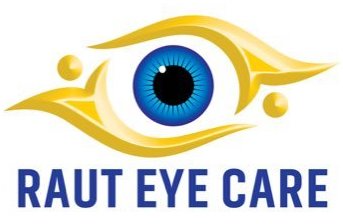The cornea, the transparent front surface of the eye, plays a crucial role in focusing light onto the retina, enabling clear vision. Various conditions such as corneal dystrophies, infections, injuries, and degenerations can impair its clarity and function, necessitating corneal transplantation. Over the years, two notable techniques have emerged as pivotal advancements in this field: Penetrating Keratoplasty (PKP) and Femtosecond Laser Keratoplasty (FLK). These procedures have revolutionized corneal transplantation by improving surgical precision, reducing recovery times, and enhancing patient outcomes.
Penetrating Keratoplasty (PKP)
Penetrating Keratoplasty, also known as traditional or full-thickness corneal transplantation, has been the gold standard for decades. In this procedure, the entire central portion of the patient's cloudy or damaged cornea is replaced with a healthy donor cornea. The surgeon manually creates an appropriate-sized circular incision on the patient's cornea and the donor cornea. The donor cornea is then stitched onto the recipient's eye using sutures.
While PKP has been successful in restoring vision in many cases, it does have its limitations. The procedure involves a lengthy recovery period due to the need for sutures and their associated risks. Suture-related complications such as astigmatism and induced irregularities can also affect visual outcomes. Moreover, the wound healing process and visual rehabilitation can be slow and unpredictable.
Femtosecond Laser Keratoplasty (FLK)
Femtosecond Laser Keratoplasty is a relatively newer technique that has rapidly gained popularity due to its ability to address some of the limitations of traditional PKP. This procedure utilizes femtosecond laser technology to create precise incisions in the donor and recipient corneas, allowing for a more accurate and customized fit.
In FLK, the surgeon uses the femtosecond laser to create a circular or custom-shaped incision in both the donor and recipient corneas. This precise incision reduces the variability associated with manual incisions in PKP. Furthermore, FLK can create thinner and more consistent corneal grafts, which can lead to improved wound healing and reduced astigmatism.
The advantages of FLK extend to the post-operative period as well. Since the incisions made with the femtosecond laser are more uniform and stable, the need for sutures is often reduced or eliminated. This results in quicker visual recovery and reduced risk of induced astigmatism. Patients undergoing FLK typically experience less discomfort, reduced reliance on glasses or contact lenses, and an overall improved quality of life.
Comparing PKP and FLK
While both PKP and FLK aim to restore vision by replacing damaged corneal tissue, FLK offers several advantages over traditional PKP. These include:
Precision: FLK's use of femtosecond laser technology allows for highly accurate and consistent incisions, reducing variability and improving visual outcomes.
Reduced Astigmatism: FLK's precise incisions and reduced reliance on sutures result in decreased astigmatism, leading to clearer and more predictable vision.
Faster Visual Recovery: FLK patients typically experience quicker visual recovery due to reduced sutures and improved wound healing.
Customization: FLK enables customized corneal shapes and sizes, catering to the patient's individual needs.
Reduced Discomfort: FLK's minimally invasive approach often leads to reduced post-operative discomfort.
Despite its advantages, it's worth noting that FLK may not be suitable for all cases. The availability of femtosecond laser technology and the specific characteristics of each patient's condition can influence the choice between PKP and FLK.
In conclusion, both Penetrating Keratoplasty and Femtosecond Laser Keratoplasty are significant advancements in the field of corneal transplantation. While PKP has been the longstanding approach, FLK has emerged as a promising alternative, offering greater precision, faster recovery, and improved visual outcomes. As technology continues to evolve, these techniques may continue to be refined, further enhancing the success of corneal transplantation and improving the lives of those in need of vision restoration.

